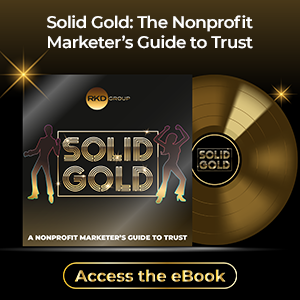For decades, nonprofit organizations have stepped in admirably to help fill the gaps where government programs are lacking. With the signing of the $2 trillion economic stimulus package into law, the federal government is returning the favor.
As each of us deals with the coronavirus pandemic in our own personal way, we continue to look to the nonprofit community as a source of inspiration. Without hesitation, staffers and volunteers have used their creativity and resourcefulness to endure this great challenge we all face together.
Donors have also done a remarkable job rising to the occasion. Our food bank clients, for example, have seen record-breaking online giving in these early weeks. This revenue is a huge boost as they toil on the front lines to provide meals for those in need.
But nonprofits will need more help. And soon.
The COVID-19 pandemic is a slow-moving health crisis that has also become an economic crisis. As we’ve seen before in the Great Recession, the effects on charitable giving lag behind changes in the economy. At that time, it took roughly 9-12 months before we saw a measurable drop in donations.
This economic stimulus law will provide much-needed relief to nonprofits now, while also setting them up to survive the longer haul.
As you might imagine, this is a complex piece of legislation. Allow me to focus on a few key spots that I believe will make the biggest impact on nonprofit fundraising.
UNIVERSAL DEDUCTION
The Tax Cuts and Jobs Act of 2017 simplified the tax code by essentially removing the incentive for itemized deductions. Many experts predicted this would catastrophically depress charitable giving, which didn’t happen.
Nevertheless, nonprofits have been asking the federal government to provide a universal charitable deduction since the tax reform passed. They now have their wish.
The new law – the Coronavirus Aid, Relief, and Economic Security (CARES) Act — gives all taxpayers up to $300 in charitable deductions. The loss of the itemized deduction did little to slow down donations, but nonprofits can take advantage of the universal deduction by informing donors about the change.
A VARIETY OF FUNDING OPTIONS
Nonprofits with 500 or fewer employees will be able to get up to $10 million in Small Business Administration (SBA) loans to fund their operations. If they keep their employees on payroll through June 30, those loans may transform into grants.
The stimulus package also provides additional tax credits, reimbursements and loan opportunities for organizations (here’s a good list).
These provisions will provide much-needed stability to nonprofit programs during this time of uncertainty. It will also ensure that development teams have the support they need to continue to bring in funding through donations.
POSTAL SERVICE HELP
Digital marketing tools like email, social media and livestream fundraising are quickly becoming indispensable to nonprofits in our multichannel reality. Yet online giving only made up 8.7% of all fundraising revenue in 2019.
That means direct mail is still the backbone of so many fundraising programs. And, of course, the U.S. Postal Service is the backbone of direct mail.
The CARES Act provides a $10 billion Treasury loan to the USPS to help pay off its $11 billion in debt. This is short of the $25 billion appropriation that was initially discussed, but it still gives some much-needed stability.
We all face a great challenge in the coming months, but history tells us to have faith in the resilience of the human spirit.
It’s great to see our nation’s leaders put their differences aside and work together to provide financial assistance to those who need it at this time. With this new economic stimulus legislation, the nonprofit community can continue to focus all of their energy on their missions.





Leave a comment: